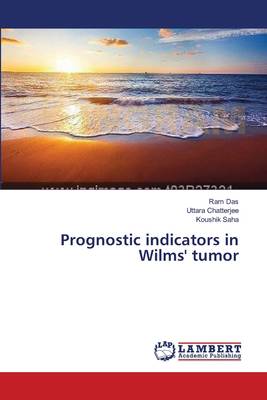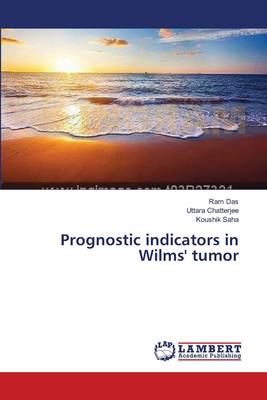
- Afhalen na 1 uur in een winkel met voorraad
- Gratis thuislevering in België vanaf € 30
- Ruim aanbod met 7 miljoen producten
- Afhalen na 1 uur in een winkel met voorraad
- Gratis thuislevering in België vanaf € 30
- Ruim aanbod met 7 miljoen producten
Zoeken
€ 68,45
+ 136 punten
Omschrijving
a)Introduction of problem: The significant prognostic factors of Wilms' tumor are- stage, age, anaplasia, size, capsular invasion, etc. The role of DNA ploidy, proliferation markers is still not proven. b)Abstract: Aims: This study was done to analyze the histopathological spectrum of pediatric renal tumors and to study the expression of Ki67, p53 and p27 in WT and correlate their expression in epithelial and blastema components in different stages of WT. Results: It was observed that the PI of Ki67 of epithelial component was significantly higher than that of blastema component in all stages. Proliferation index in stage II was significantly higher than stage I. Statistical analysis could not be done in stage III and stage IV due to small number of cases. p53 and p27 expression did not show any significant difference in epithelial and blastema components and in between stages. Conclusion: We found the differences of PI in different tissue components of WT. The epithelial component having higher PI of Ki67, which correlated well with the stage of advancement of the disease. c) Target group: The book was written for the pathologists, pediatric surgeons and urologists.
Specificaties
Betrokkenen
- Auteur(s):
- Uitgeverij:
Inhoud
- Aantal bladzijden:
- 100
- Taal:
- Engels
Eigenschappen
- Productcode (EAN):
- 9783659222061
- Verschijningsdatum:
- 28/02/2014
- Uitvoering:
- Paperback
- Afmetingen:
- 150 mm x 220 mm
- Gewicht:
- 151 g

Alleen bij Standaard Boekhandel
+ 136 punten op je klantenkaart van Standaard Boekhandel
Beoordelingen
We publiceren alleen reviews die voldoen aan de voorwaarden voor reviews. Bekijk onze voorwaarden voor reviews.








